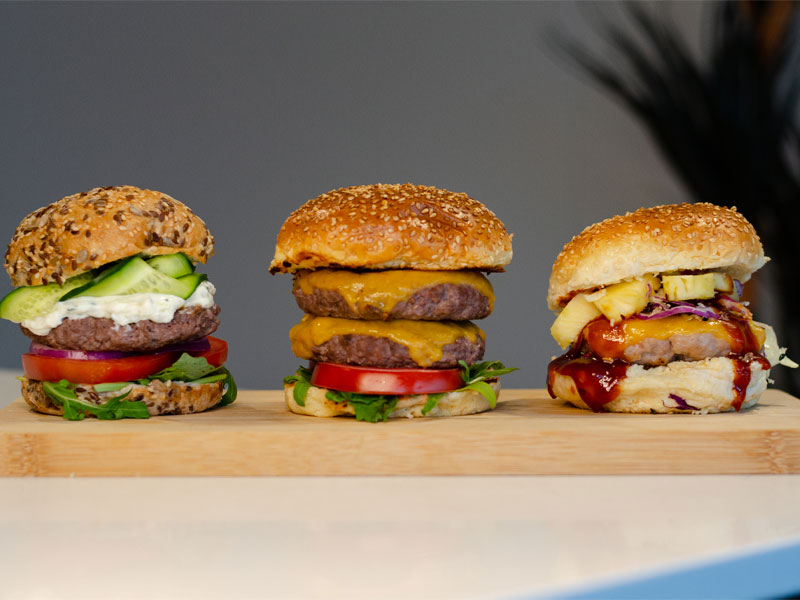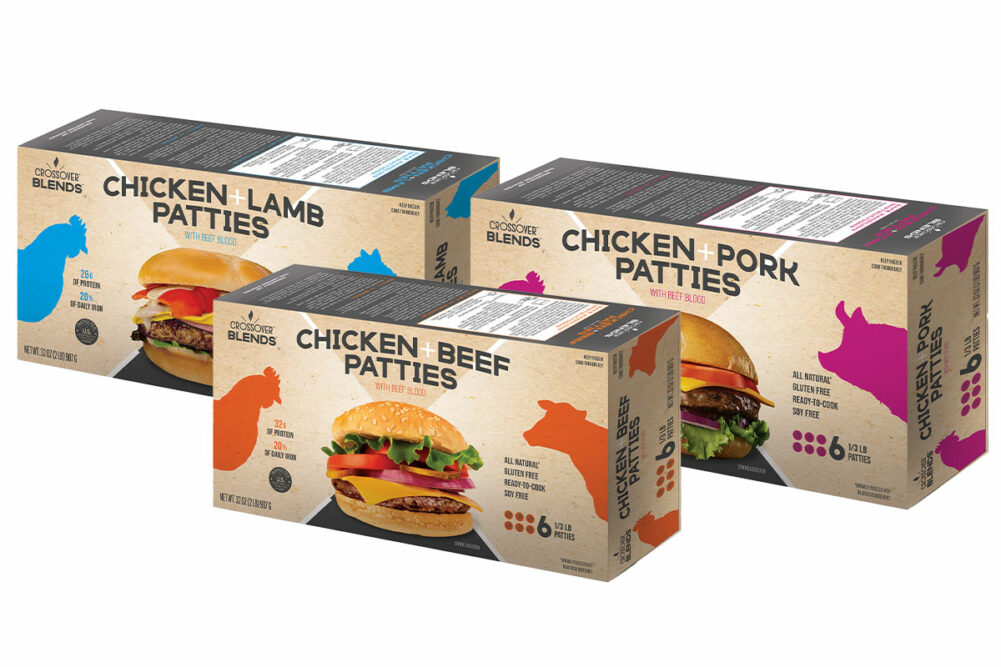 NEW YORK — One would not think a vegan would start a meat company, but for Michelle Adelman, founder and chief executive officer of Crossover Meats, developing a blended burger primarily formulated with chicken was what she wanted to do.
NEW YORK — One would not think a vegan would start a meat company, but for Michelle Adelman, founder and chief executive officer of Crossover Meats, developing a blended burger primarily formulated with chicken was what she wanted to do.
“One of the reasons I chose to be vegan is because of the environment,” she said.
Crossover Meats products are formulated using a patented process and recipe, which features a blend of chicken, beef, pork, or lamb trim and beef blood.
“We replace the lean protein of a typical ground meat like ground beef with whole chicken cuts,” Adelman said. “Grinding it with beef blood and beef fat in the same proportions that are in regular ground beef. We use food grade beef blood for the iron and color to create an all-natural real meat product.”
The burgers are frozen raw and available in such flavors as chicken and beef, chicken and pork, and chicken and lamb.
“We thought based on the patent and science the product was going to come out with basically the same nutrition as a regular 80/20 (beef) burger,” Adelman said. “What actually came to life in the testing, is that our product is lower in saturated fat.”
Adelman chose chicken as the burger’s primary ingredient because she said she believes it has a lower impact on the planet.
“Chickens aren’t ruminant animals … they don’t burp and fart their way through life,” she said. “They’re fast growing, they use a lot less feed and water, and they have much better feed to protein conversion.”
Crossover Meats focuses its marketing on four key market segments. The first are beef burger buyers who are looking for cheaper price. Second and third are consumers interested in convenience and flexitarians who don’t want to give up meat. Finally, the company is seeking to reach consumers interested in innovation and something new.
 Photo: Crossover Meats
Photo: Crossover MeatsWhile retail is Crossover Meats main market category for now, the company is aiming to soon reach foodservice. The company also hopes to expand into other regions and into other accounts like commercial and industrial.
“I always thought we were going to start in foodservice,” Adelman said. “Retail is really seeming to gain the most interest. We will later turn our sights to Europe and Asia. The great thing about Crossover Meats is the recipe and process is highly scalable and conducive to local sourcing and distributed manufacturing. This will enable us to develop localized supply chains in each country we serve and keep the sustainability of our supply chain as lean as possible.”
Today, the company’s products may be found in California, on the East Coast and on the company’s direct-to-consumer website.
While the product is only available in a burger format, Adleman hopes to introduce additional applications.
“We’ve already run our first test run trials with a co-packer (on a fully cooked format) and are looking to finalize that relationship,” she said. “We’d love to be in dumplings, meatballs, and meat pies in different types of packaged and prepared foods.”
Adleman is hoping Crossover Meats may cross over into working with culinary chefs and boutique meat producers to further expand its reach in the market.
“Boutique meat producers can double the amount of ground product they have available to sell at excellent margins,” she said. “Chefs can create their own culinary innovations blending our Crossover chicken base pack with their proteins.”
Enjoying this content? Learn about more disruptive startups on the Food Entrepreneur page.





